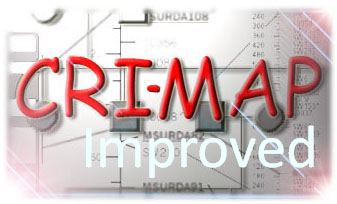
Background
|
CRI-MAP (version 2.4, by
Phil Green
et al, 1990) has been used extensively in the past 20 years for genetic linkage analysis
of diploid species, and has played a fundamental role in producing genetic linkage
maps for humans, rats, mouse, fruit flies, cattle, sheep, pigs, chicken, fish,
among many other species.
However, both the number of genetic markers and the pedigree sizes commonly used
today greatly exceed the capacity that the original version of CRI-MAP handled.
Therefore improvements have been made so that CRI-MAP can better handle large
pedigrees with large numbers of markers on modern hardware. Please note that
whilst this is an improved version of CRI-MAP that there are still problems
handling large pedigrees with large numbers of bi-allelic markers particularly
when there are lots of missing parental and grandparental genotypes. The
improvements are still ongoing so please fill out the CRI-MAP usage form and
submit an e-mail address so that you can be notified of future improvements or bugs.
|
Aims
|
Provide a faster, more efficient and more robust CRI-MAP for the genetics
research community.
|

|

Enhancements:
|
Converted to C++
Better memory usage
Faster
Handles larger pedigrees
Handles more markers
|
Improvements in the pipeline
|
Parallelisation for use on multi-cpu machines
New map building algorithm for use with large data sets
Better pedigree handling
|

User Tools
|
Software repository
CRI-MAP User Forum
|
User References
Bug report
|

 Downloads
Downloads ( Apr 17, 2015)
( Apr 17, 2015)
 ( Jul 22, 2015)
( Jul 22, 2015)